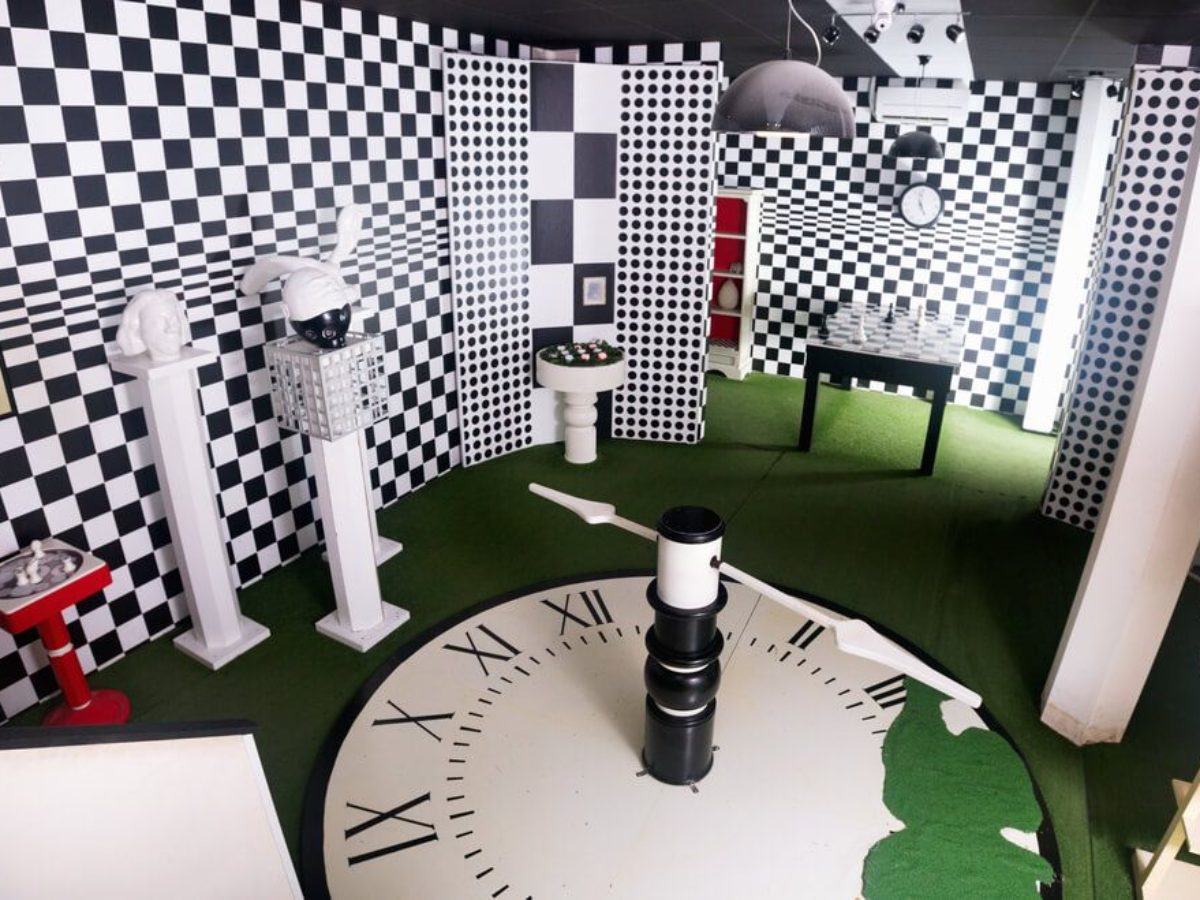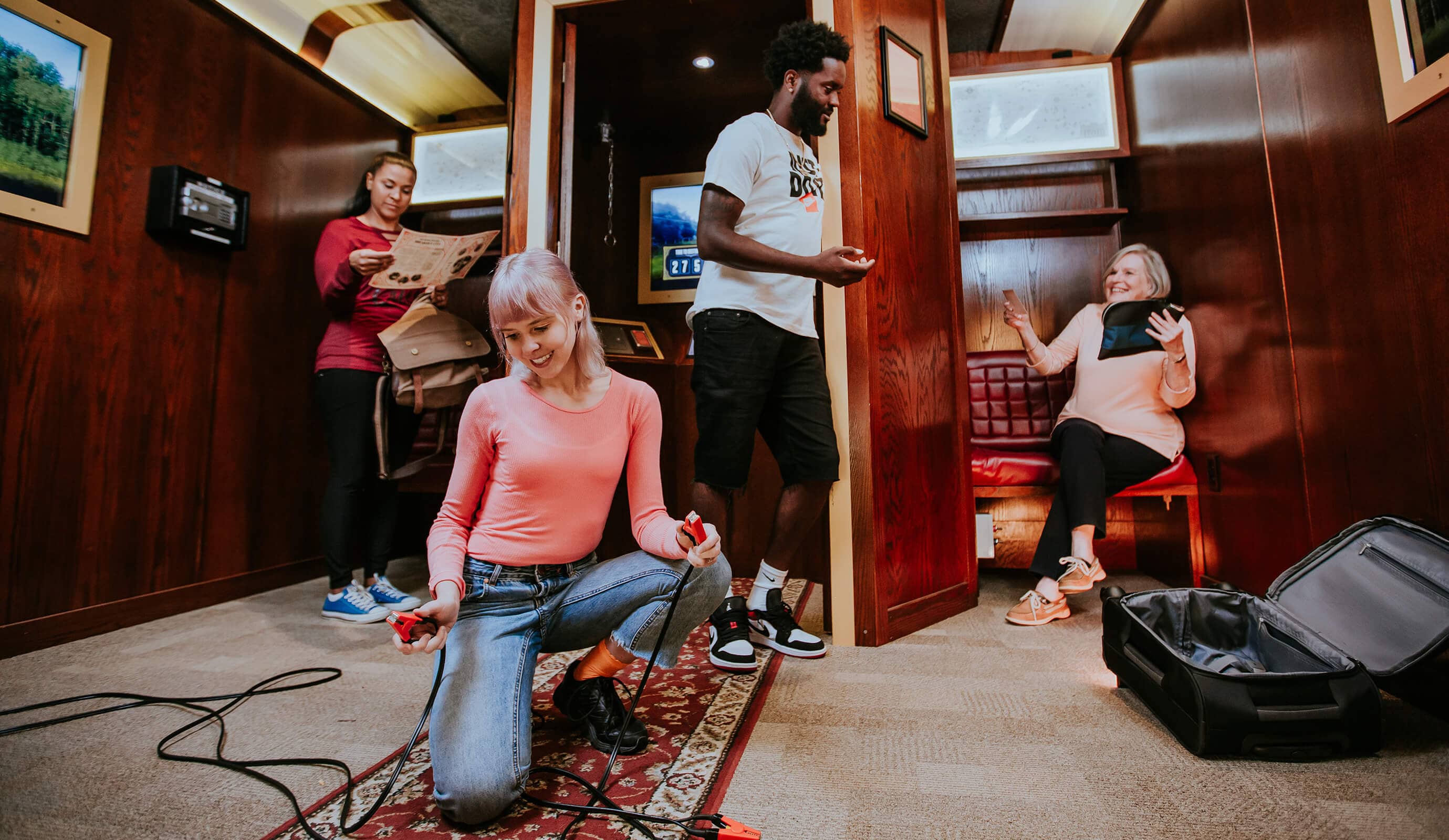Minneapolis Escape Room-- Interesting Puzzle Difficulties for All Ages
Minneapolis Escape Room-- Interesting Puzzle Difficulties for All Ages
Blog Article
Group Approaches: Exactly How to Work together Efficiently in a Retreat Area
Navigating the complexities of an escape space requires greater than mere interest; it requires a well-coordinated method grounded in clear interaction, tactical duty projects, and adept time monitoring. Teams need to proactively listen to every participant's understandings, appoint duties that line up with private staminas, and keep routine check-ins to guarantee emphasis and stop redundancy. By fostering an environment that values cohesion and flexibility, groups can dramatically enhance their effectiveness and success rates. The nuances of these methods can transform the experience, but just how precisely can they be executed to optimize the potential for success?
Establish Clear Communication

To assist in clear communication, it is crucial to designate a central point of contact for information dissemination. Brief, focused updates from each group participant can keep the team educated without overwhelming them with info.

Assign Functions Strategically
While clear communication establishes the foundation for reliable synergy, designating duties tactically makes certain that each staff member's strengths are used efficiently. In a retreat area circumstance, the time-sensitive and intricate nature of obstacles demands an efficient approach to task delegation. By determining and leveraging private competencies, teams can enhance their analytic capabilities and enhance general efficiency.
First, analyze the one-of-a-kind skills and features of each participant. Someone with an eager eye for detail may stand out in discovering concealed objects, while a rational thinker can be much better suited to fixing puzzles. It's similarly crucial to have a leader who can supervise development, handle the timeline, and make decisive phone calls when essential. This role commonly calls for strong business and interpersonal skills.
Second, make sure that functions are adaptable and adaptable. As new obstacles arise, the group needs to be able to pivot, reallocating tasks as needed. This flexibility assists maintain energy and protects against bottlenecks that can happen because of inflexible function assignments.
Eventually, a critical technique to role project not only maximizes the staminas of each employee but likewise promotes a natural environment, driving the team towards an effective getaway.
Use Diverse Abilities
Acknowledging and taking advantage of the diverse abilities within your group can significantly raise your efficiency in an escape room. Each staff member brings special staminas to the table, and effectively leveraging these capacities can accelerate analytical and boost overall performance. A group participant with strong logical abilities might stand out at analyzing intricate codes or patterns, while one more with eager observational capabilities might promptly detect concealed clues that others may forget.
Efficient interaction is key to utilizing these diverse skills. Encourage group members to articulate their insights and concepts without delay, ensuring that all potential services are taken into consideration. This comprehensive approach cultivates a vibrant atmosphere where creative thinking and important thinking can flourish. pop over to this site Furthermore, designating tasks that line up with each member's strengths can prevent traffic jams and make sure that development is constant.
In addition, diversity in abilities commonly equates to variety in believing styles, which is vital in a getaway room setting. While some difficulties may need rational reasoning and precision, others could benefit from imaginative and association of ideas. By recognizing and leveraging this diversity, groups can address a broader variety of challenges a lot more successfully, thereby increasing their possibilities of an effective getaway.
Manage Time Properly

First, designate first mins for a quick survey of the room. Identify visible problems and separate tasks based on staff member' staminas, making sure that nobody is idle. Set interior time checkpoints to evaluate progress occasionally; for circumstances, goal to have half the problems resolved by the mid-point of the video game. This technique can help keep the group focused and stop time from sliding away unnoticed.
Furthermore, avoid one-track mind. If a challenge is taking too long, rotate staff member or go on to another challenge, returning later on with try this out fresh perspectives. Interaction is vital-- keep every person upgraded on solved puzzles and remaining jobs to prevent repetitive initiatives.
Lastly, utilize any tips or clues moderately yet tactically - best escape room. Recognizing when to ask for help can conserve useful time. By adhering to these time monitoring concepts, teams can substantially enhance their opportunities of a successful and satisfying escape area experience
Debrief and Reflect
Representation is a crucial element of team development and renovation in the context of retreat spaces. When the obstacle is finished, whether efficiently or otherwise, it is essential for the group to involve in a structured debriefing session. This procedure permits group members to analyze their performance, recognize strengths, and determine locations for improvement.
Start the debrief by reviewing what went well. Highlight specific instances of effective communication, analytical, and partnership. Recognizing these positive actions enhances them and encourages their repeating in future difficulties.
Go over moments of confusion, miscommunication, or ineffective techniques. Urge an open and constructive discussion where team participants can share their point of views without worry of criticism.
Verdict
To conclude, successful collaboration in a getaway room is predicated upon clear communication, critical duty assignments, the effective use of varied skills, and skilled time monitoring. Regular click over here check-ins and structured debriefings are vital for maintaining emphasis and cultivating continual enhancement. By creating a natural and adaptive team environment, the probability of efficiently resolving challenges and achieving the objective of leaving the space is significantly improved. This technique not only guarantees success however also promotes collective development and learning.
Report this page